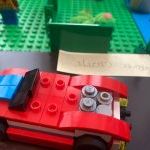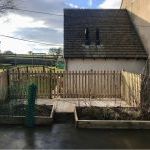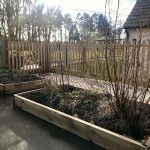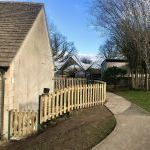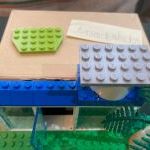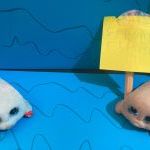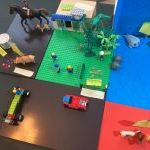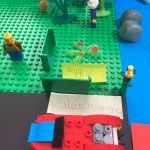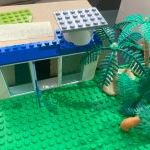Planning a Planet Friendly School at Miserden
As part of their eco-school project, children from Miserden C of E Primary School were tasked with designing their own planet friendly eco school. They looked at what other eco-schools are doing, and discussed what issues are important in terms of looking after the planet. All the pupils then were tasked with designing their own eco school at home with their parents to demonstrate their ideas. These were made as models with lego or recycled waste; drawings, films and written descriptions. The ideas were discussed within each class and practical ideas taken forward. Some projects, such as electric car points and solar panel to generate power may be for the future, but many ideas could be started straight away. The school runs forest school classes every Friday which are very popular; it has its own school cook and undertakes outdoor learning whenever possible.
Website
Country
Keywords
Growing, Environmental, Kindergarten, Primary School, Local Community project
Media
* TOP TIP *
'Set the pupils a task of designing their own planet friendly school by using models, drawings and films to capture their ideas.'
How is the project linked to climate change & sustainability?
It is essential to involve young people in the decision-making that will help determine the world they will inherit. A key element of tackling climate change and environmental sustainability is to raise awareness and knowledge about the issues, and then taking some actions to encourage planet-friendly behaviours. This project enabled all pupils in the school to think about how they could change the school to make it less harmful to the planet. Some of these ideas were then implemented as practical projects in the school. Hopefully, these ideas will stay with them and create more sustainable behaviours in the future.
Who is involved?
The teachers worked with all the pupils in discussing the climate change issues and then developing their responses. An initial project identified was to create a wildflower area and the Miserden School Friends Association helped fund the materials and parents were involved in building the area.
How are the participants involved?
The school community has been involved in the project. The initial dicussions around creating a planet friendly school was done in class time between teachers and the pupils. The subject is a key area of the curriculum so it became an interesting topic to engage the pupils. Many children involved their parents in creating their ideal eco-school, with help making models, drawing plans and filming the results.
It was important to identify some ideas to take forward and an easy one to get started with was to create a wildflower area in a disused area of the playground. This idea was brought to life by parent volunteers, and materials from local suppliers. The Miserden School Friends Association contributed some funding - it runs a range of community events to raise money for projects like this in the school. These events include a Christmas Fair, Easter Egg trail and Fireworks night.
The school children are now filling the area with wildflowers to attract bees and butterflies, building hedgehog homes, and provide insect hotels. Wildflower planting is a fantastic planet friendly activity, that can be done in any available space. Using widely available wild flower seeds, schools are able to sow a bee friendly, mini wildflower meadow in the spring (March to April) or the autumn (September). Trees have also been planted in the playing field to mark the Queen's jubilee, with support from the Miserden Estate. Stay and Play pupils have been involved in planting vegetables as an after-school activity club.
Miserden Primary's eco-credentials run even deeper. It runs forest school sessions for all classes every Friday in the woodland next to the school field. Miserden is very much an outdoor school, where wellies are essential kits and children have lessons outside if the topic suits. The heating is provided by a community woodchip boiler that provides heating for the properties on the Miserden Estate, uising wood from the nearby woodland. All help create the learning environment for planet-friend pupils in the future.
Key steps:
1. Discuss climate change and environmental issues with the class and consider what the school may be able to do to help.
2. Undertake internet research for inspiring planet-friendly eco-schools and exciting projects for inspiration.
3. Set the pupils a task of designing their own planet friendly school. Use models, drawings, films and descriptions to capture their ideas. The more creative the better!
4. Discuss which project ideas could be done now, and which may be a bit too ambitious, Create a Planet Friendly School action plan that everyone can get involved with.
5. Work with pupils, parents and the school community to put the ideas into practice!
"We've planted some trees because it is good for the planet and good for wildlife."
Monty, Miserden C of E Primary School

